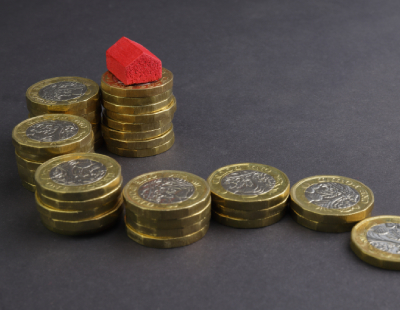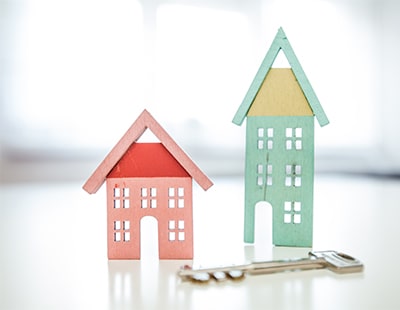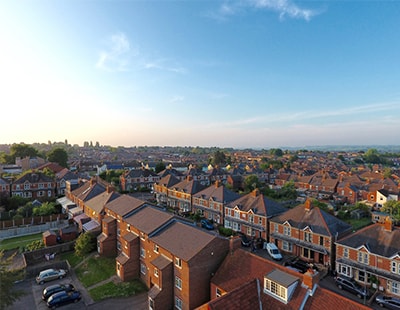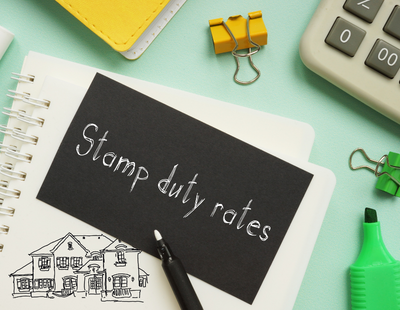This is the seventh consecutive month that average UK house prices have increased.
The South West was the region with the highest annual house price growth, with average prices increasing by 16.9% in the year to May 2022.
This was up from a growth rate of 14.7% in April 2022.
The lowest annual house price growth was in London, where average prices increased by 8.2% over the year to May 2022, up from 6.9% in April 2022.
Despite being the region with the lowest annual growth, London's average house prices remain the most expensive of any region in the UK, with an average price of £526,000 in May 2022.
The North East continued to have the lowest average house price at £154,000.
Lawrence Bowles, director of research at Savills, insists that a decline is due.
He said: “Prices rose 1.2% between April and May, an increase from the 0.4% between the same two months last year. However, we can expect to see a decline in annual house price growth in next month’s figures.
“Prices increased a blistering 5.7% between May and June last year – the fastest pace of monthly growth ever recorded in the ONS data – as buyers rushed to complete before the end of the stamp duty holiday. But emerging evidence suggests the supply-demand imbalance that has characterised the market for the last year may be starting to unwind.
“While the flow of homes onto the market remains 10.2% below pre-pandemic levels, the number of agreed sales fell to 0.7% below normal levels in June, according to data from TwentyCi. With demand easing and no race to snag a tax break this year, we should expect annualised growth figures to be lower when the June figures are published.
“With mortgage rates rising and affordability pressures starting to bite, we’re predicting price growth will ease off through the rest of 2022. We’re predicting price growth of 7.5% over 2022.
Nick Leeming, chairman of Jackson-Stops, was slightly more optimistic.
He said: “While prices are still reaching new heights despite an increasingly challenging backdrop for buyers, the later summer months will provide the real temperature check for the market.
“Jackson-Stops own data indicates a continually busy market that has seen both property listings and exchanges increase in July.
“Wider economic factors such as inflation and rising interest rates will naturally begin to squeeze the lower end of the market as the year progresses. But for now, it is playing into the hands of sellers who continue to benefit from the buying buzz, as movers look to lock in competitive mortgage rates ahead of further announcements from the Bank of England.
“A waning pipeline of new homes from housebuilders will also help to insulate house prices, even if growth levels cool from month to month. This is something that the newest Housing Minister, the 12th in 12 years, will need to tackle head on in order to create a market that works for everyone.”
He suggested the combination of heatwaves and holidays over the next few months is likely to push house hunting down the agenda.
Leeming said: “This may result in a minor reduction in new applications and appraisals, but as we head into the autumn we expect buyers to return to their search as the push to be ‘in by Christmas’ continues in earnest.
“Properties at the higher end of the market and specialist listings may be sheltered somewhat from the market rebalancing. However, as the whole of the UK revaluates its budgets in light of the rising cost of living and ahead of the energy price cap changes in October, this will no doubt be front of mind for all buyers when they consider what they can afford.”
Sarah Coles, personal finance analyst for Hargreaves Lansdown added that it will take a while for current economic data to filter through into Land Registry figures.
She said: “Things are likely to get even tougher as we go through the summer.
“A combination of higher GDP figures than expected in May, and inflation hitting 9.4% in June, means we’re expecting interest rates to rise again in August by as much as 0.5 percentage points. And while existing owners are largely protected by fixed rate mortgages for now, new buyers are going to have to factor in higher borrowing costs.
“Meanwhile, some of the prices rises we’re having to absorb are making life incredibly difficult – from the cost of gas doubling in a year to petrol prices up more than 40% over that time. And there’s a threat of worse to come in October, when energy prices are expected to rise 65%. Anyone considering stretching their finances to afford a new home at this stage, may well be starting to get cold feet.”















.png)


.png)




Join the conversation
Jump to latest comment and add your reply
It’s not ‘coming’ it has been here for a while. What we’ve been feeling recently is overflow demand, not surge. The Land Reg data is always 3+months out of date. See all the recent price reductions? The market isn’t dropping, it just slowed down a while a ago.
Please login to comment